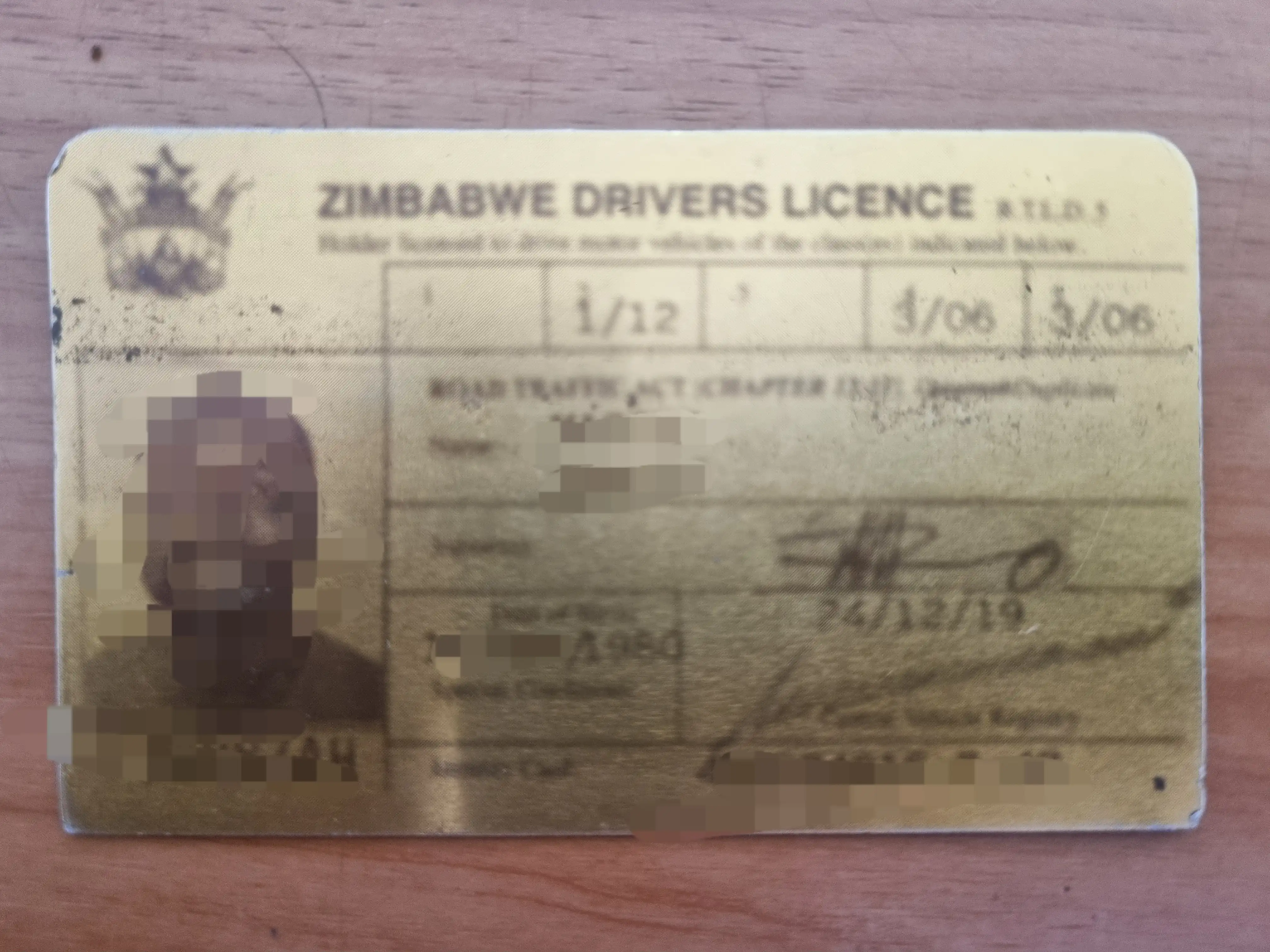
Zimbabwean Drivers Trigger Alarming Rise in UK Road Accidents - Fake Licences, Inexperience Cited
A Zimbabwean residing in the UK and working in a traffic safety organization, Mr Davin Chitupa, has spoken out about the issue of Zimbabweans migrating to the United Kingdom and allegedly using fake driver’s licenses, stating that many Zimbabweans in the UK have obtained licenses through corrupt Vehicle Inspection Department (VID) officers by paying hefty sums of money, reports The Herald.
According to Mr. Chitupa, Zimbabwean drivers with fake licenses are more likely to be involved in fatal crashes and engage in high-risk driving behaviors such as impaired driving, speeding, and driving without restraints.
Within just a span of three months, numerous Zimbabwean immigrants in the UK have been involved in accidents. While they hold valid licenses, most of them have never driven a car before, and some licenses have been fraudulently backdated to create the illusion of driving experience.
A study conducted using logistic regression and generalized estimating equations analyzed the impact of unlicensed driving by new Zimbabwean immigrants on passenger restraint use. The study controlled for various factors that affect passenger restraint use, including driver restraint use, gender, number of occupants, driver drinking, crash year, and crash location.
The findings of the study revealed that Zimbabwean drivers without valid licenses posed a significant threat.
Recognizing the severity of the issue, the Driver and Vehicle Licensing Agency (DVLA) is proposing legislation to monitor new foreign drivers closely. This problem has particularly affected immigrants arriving with a Certificate of Sponsorship (COS) visa, as many of them possess driver’s licenses. Unscrupulous VID officers have been taking advantage of these immigrants by charging exorbitant fees of over $3,000 to provide them with illicit licenses.
Speaking anonymously, Mr. MC emphasized the concerning statistics related to passenger restraint use in fatal crashes involving Zimbabwean drivers. Passengers in such crashes exhibited a meager average of 40.9% restraint use, indicating a disproportionate impact on their safety due to unlicensed driving. This pattern of new Zimbabwean unlicensed drivers and their passengers poses a growing threat that necessitates further investigation and understanding.
Another aspect of concern is the age of these drivers, as many of them are young and lack experience. Young Zimbabwean drivers in the UK face a higher risk of road traffic crashes and injuries due to their age, inexperience, and the challenges of adapting to a new driving environment.
Read | Can you legally drive a truck using a Zimbabwean licence in SA?
Additionally, these drivers often receive a car on the day they arrive in the UK, leading to on-road learning experiences while carrying passengers.
Accidents involving vehicles traveling on the wrong side of the road have become alarmingly common, particularly in areas with care homes or people on care shifts. The A9 road in Scotland, known for its danger, has witnessed a tenfold increase in accident rates since the arrival of COS migrants.
To address this issue, Road Safety Scotland has launched a campaign to remind drivers from other countries to “Keep Left” and is distributing wristbands with reminders in multiple languages. The campaign has garnered support from Police Scotland and local car rental companies.
An incident in Inverness further exemplifies the consequences of unlicensed driving. A man traveling to work along the A9 was involved in a head-on collision caused by a Zimbabwean driver who had spent only three days in the UK. The victim sustained injuries that rendered him unable to work for two weeks and relied on assistance from his family for daily tasks. Although the driver’s liability was clear, the case highlights the dangers associated with corruption within the VID, which can have far-reaching impacts.
Inexperienced driving has emerged as a terrifying factor contributing to accidents in the UK. It is disheartening that individuals from Zimbabwe are playing a role in causing these accidents. Many drivers traveling to northern regions of the UK are unfamiliar
with the roads, and even a momentary lapse of concentration can have severe consequences. This lack of experience is compounded by the fact that some new immigrants are granted cars upon arrival, forcing them to learn on the road while carrying passengers.
For individuals new to the United Kingdom, their entitlement to drive depends on factors such as residency status and the origin of their existing driver’s license. Those with a full driver’s license from the European Economic Area (EEA), designated countries, or countries with reciprocal agreements with the UK can drive in the UK for up to twelve months, provided they do not intend to stay longer.
Read | Metal licence gets the boot as Zim rolls out new SADC compliant driver’s licence cards
Foreign drivers not seeking residency in the UK can use their existing licenses for up to twelve months. This rule applies to countries within the EU, EEA, Britain’s Designated Countries, and other nations, including Zimbabwe.
It should be noted that certain countries, like Canada, may allow driving automatic vehicles if the driver can prove they have passed a test demonstrating competence in operating manual vehicles.
To be classified as a UK resident, individuals must meet specific criteria, including spending 183 or more days in the UK during the tax year and having their only home in the UK, which they owned, rented, or lived in for at least 91 days, with at least 30 days spent there during the tax year.
Residents of the UK must eventually exchange their original license for a British one, depending on the designated timeframe associated with their country of origin.
Considering the current situation, it may not be long before the UK bans Zimbabwean licenses due to the issues highlighted in this report.





